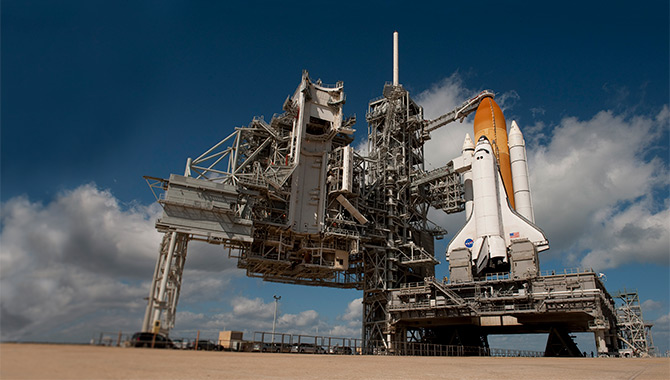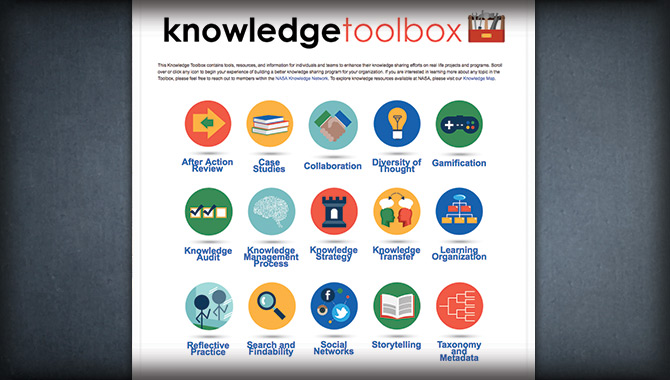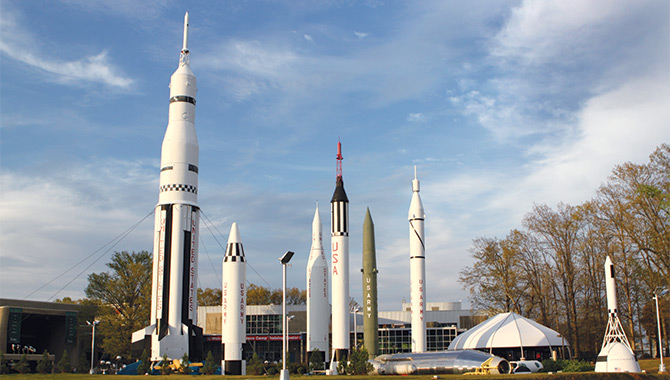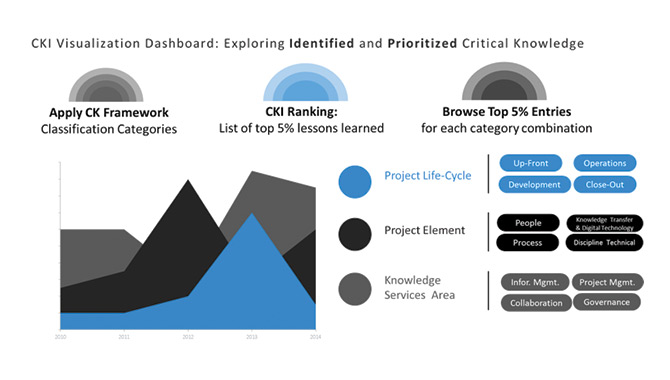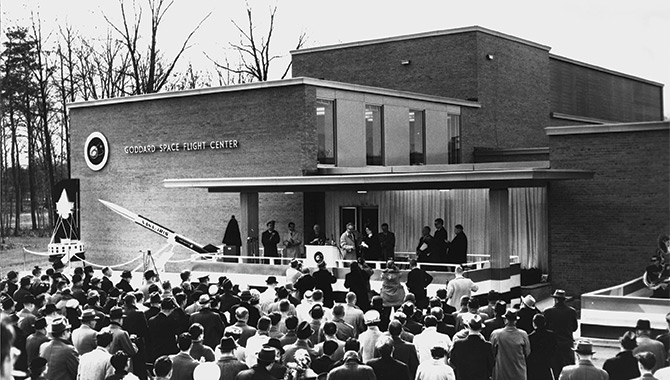
Photo from the opening day ceremony of the Goddard Space Flight Center on March 16, 1961.
Photo Credit: NASA
Space and Earth science missions are complex.
In fact, mission complexity can be defined by various factors—science objectives, technology requirements, cost, procurements, project and funding structures, partnerships, stakeholder relationships, etc. In order to achieve mission success, technical know-how should be carefully balanced with leadership strategies for complex decision-making. The NASA Goddard Space Flight Center has a rich record of successful space and Earth science missions.
The Road to Mission Success (RTMS) I is a series of workshops designed specifically to transfer the experience, wisdom, and values embedded in Goddard Space Flight Center (GSFC) policies, procedures, and processes to emerging leaders and managers at GSFC. Participants learn more about GSFC and the Agency, particularly how GSFC works—“how and why we do the things we do and why we are successful.” These open discussions and facilitated “case studies based” instruction are designed to transfer critical knowledge required to achieve mission success.
RTMS I leverage the experience and know-how of over 20 GSFC senior management personnel to convey technical best practices and lessons learned from missions. Each RTMS I class is comprised of 55 participants. The classroom time of the program consists of six full days spread over a six-week period. Since its inception in 2005, a total of 16 sessions or classes have been offered, graduating a total 848 GSFC employees as of 2015.
The Road to Mission Success II: Leadership for Complex Decision-Making (RTMS II) is designed to address challenges associated with complex decision-making on the senior leadership level. NASA scientists and engineers have excellent technical backgrounds. However, in order to fully prepare them for mission implementation challenges, there is a need to equip them with leadership strategies for handling complex decision-making.
RTMS II leverages the reflections by senior leaders on decision-making lessons and the experiences and know-how of outside experts on leadership, decision-making, and communications. The classroom time of the program consists of three full days spread over a three-week period, with selected books and case studies handed out before sessions as pre-reads.
For both RTMS I and RTMS II, case studies are used to assist participants becoming better decision-makers, not to second guess the decisions made in the case studies. The case study teaching method is a means for developing systems thinking skills needed by a learning organization such as NASA. Some resistance to case learning with its inherent ambiguities can be expected from technical experts more accustomed to finding “the right solution” than exploring multiple paths to outcomes. By the end of either RTMS courses, participants should recognize case studies as an effective vehicle for knowledge transfer.
Moses Adoko is the Deputy Chief Knowledge Officer and Senior Fellows Coordinator at NASA Goddard Space Flight Center.






